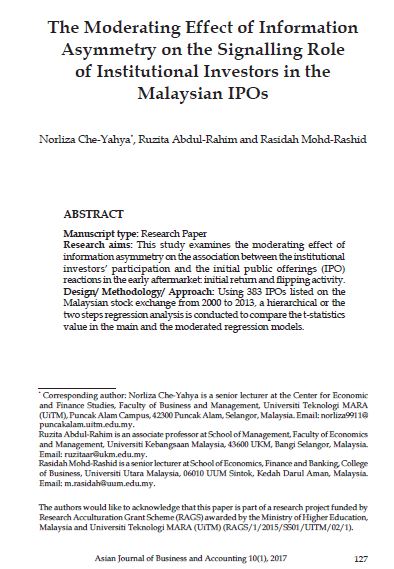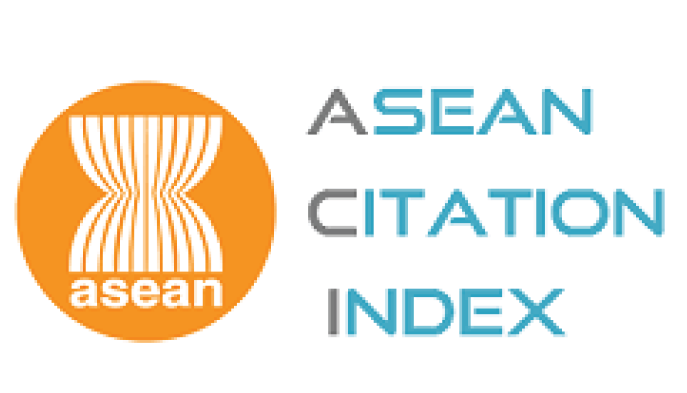The Moderating Effect of Information Asymmetry on the Signalling Role of Institutional Investors in the Malaysian IPOs
Keywords:
Information Asymmetry, Institutional Investors’ Participation, IPO Immediate Aftermarket Reaction, Malaysian IPO MarketAbstract
Manuscript type: Research Paper
Research aims: This study examines the moderating effect of
information asymmetry on the association between the institutional
investors’ participation and the initial public offerings (IPO)
reactions in the early aftermarket: initial return and flipping activity.
Design/ Methodology/ Approach: Using 383 IPOs listed on the
Malaysian stock exchange from 2000 to 2013, a hierarchical or the
two steps regression analysis is conducted to compare the t-statistics
value in the main and the moderated regression models. Research findings: The findings indicate a positive (negative)
and significant relationship between the institutional investors’
participation and initial return (flipping activity). However,
the signalling role of the institutional investors’ participation in
conveying information on the quality of the IPO issuers weakens
when the IPO issuers are surrounded by high information
asymmetry.
Theoretical contributions/ Originality: This study contributes to
the IPO literature by providing empirical evidence demonstrating
the moderating effect of information asymmetry on the relationship
between the institutional investors and the IPO reactions in the
early aftermarket.
Practitioner/ Policy implications: The findings provide IPO
issuers with an understanding on the significance of information
transparency (i.e., low information asymmetry) on investors’
reactions. Regulators may also employ the results to set a more
stringent monitoring policy on the IPO issuers so as to decrease the
likelihood of flipping activities that could erode the initial value of
the IPO issuers and wealth of the long-term investors.
Research limitations/ Implications: Future studies should be
conducted on other IPO markets and also include other signalling
devices such as the proportion of shares held by the insiders of the
IPO issuer.
Downloads








